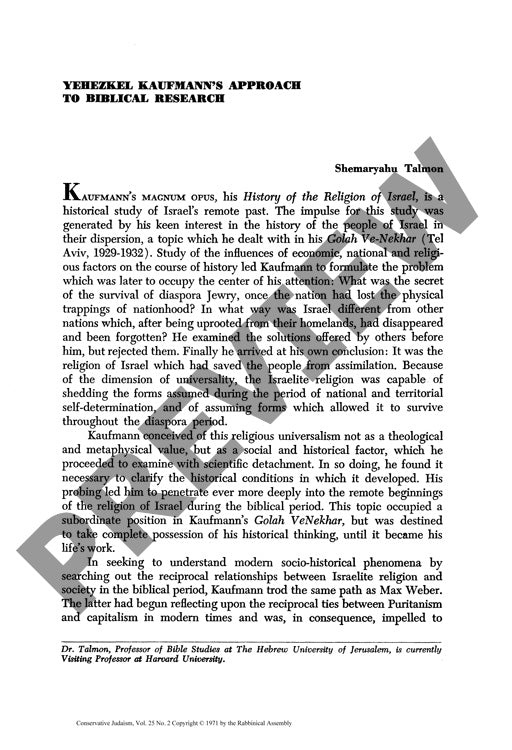Yehezkel Kaufmanns Approach to Biblical
Couldn't load pickup availability
Yehezkel Kaufmann's revolutionary challenge to Protestant biblical scholarship emerged from an unexpected source: his investigation into Jewish survival in diaspora. Through his landmark work *History of the Religion of Israel*, Kaufmann confronted the prevailing Graf-Wellhausen hypothesis by proposing that Israel's universalist monotheistic religion was not a gradual evolution, but rather fully formed from its Mosaic origins. His rational critical analysis rejected the excessive source fragmentation common to his era, arguing instead that biblical literature represented parallel expressions of unified monotheistic belief rather than chronological developmental stages. While Kaufmann's methodology illuminated new perspectives on ancient Israelite society, his framework showed notable limitations - particularly in minimizing foreign influences on Israelite religion and underestimating archaeological evidence of cultural exchange between Israel and neighboring peoples. Despite his arbitrary dismissal of syncretistic elements, Kaufmann's comprehensive synthesis of biblical scholarship stands as the twentieth century's most ambitious attempt to demonstrate Jewish spiritual and national uniqueness, fundamentally reshaping our understanding of how religious identity preserved Jewish continuity through exile.

More Information
-
Physical Description
-
Publication Information
Published
ISBN
-
Publication Credits
Shemaryahu Talmon

